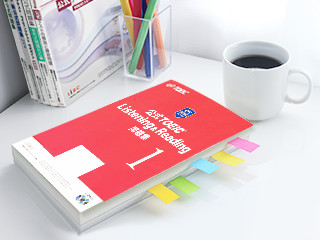English Upgrader+ ツールから選ぶ
ビジネストークテンプレート

苦情を伝える
基本的なマナーは守りつつ、何についての苦情なのかストレートに伝える必要があります。

- Jiro:
- Hi, Olivia. Thank you for coming today.
- Olivia:
- My pleasure. What can I do for you?
- Jiro:
- Well, I need to have a word with you about the interpreter you sent yesterday.
 We had a lot of problems with her, and to be honest, I was very disappointed.
We had a lot of problems with her, and to be honest, I was very disappointed.
- Olivia:
- I'm terribly sorry to hear that.
 Would you mind telling me what happened?
Would you mind telling me what happened? - Jiro:
- First of all, she came 20 minutes late, which I must say is highly unprofessional.
 Secondly, although I had specifically asked for someone with extensive technical knowledge, she occasionally got stuck on the most basic terminology and some of her translations seemed completely off. And finally, she came unprepared. She obviously hadn't read the material I sent earlier about the meeting because she didn't even recognize the name of our client company.
Secondly, although I had specifically asked for someone with extensive technical knowledge, she occasionally got stuck on the most basic terminology and some of her translations seemed completely off. And finally, she came unprepared. She obviously hadn't read the material I sent earlier about the meeting because she didn't even recognize the name of our client company. - Olivia:
- Oh, dear. I'm shocked to hear that. She's supposed to have had ten years' experience as a technical interpreter and she passed our test with flying colors. I'll talk to her first thing tomorrow.
- Jiro:
- You should probably do that. Whatever the reason, though, don't send her to our company again.
- Olivia:
- Of course. We'll send a different interpreter for your meeting next week, free of charge. Would that be OK?
- Jiro:
- I suppose. But if this kind of thing happens again, I'm afraid we'll have to stop using your service all together.

- Olivia:
- I completely understand. I'm very sorry for the inconvenience this caused you. We'll make sure this never happens again.
解説
 Well, I need to have a word with you about the interpreter you sent yesterday.
Well, I need to have a word with you about the interpreter you sent yesterday.- have a word with...は「~と話をする」という意味ですが、特に相談事や込み入った話がある場合によく使われる表現で、Can I have a word with you?は「ちょっと一言いいですか?」というニュアンスになります。
 We had a lot of problems with her, and to be honest, I was very disappointed.
We had a lot of problems with her, and to be honest, I was very disappointed.- クレームを伝える際は、冷静かつはっきりと不満を感じたことを伝えましょう。disappointedは「がっかりした」「失望した」という意味で、こういった場合によく使われる言葉で、ここではto be honest, I was very disappointed(正直申し上げて大変がっかりしました)と言っているので、かなり強い不満を表しています。ほかにもI was not satisfied with...(~には満足できませんでした)、I have a complaint about...(~について苦情があります)などと言うこともできます。ちなみに、日本語では苦情のことを「クレーム」と言いますが、claimは「損害賠償請求」「申し立て」といった意味。一般的にはcomplaintを使うので注意しましょう。
 I'm terribly sorry to hear that.
I'm terribly sorry to hear that.- 「sorry=お詫び」というイメージがあるかもしれませんが、sorryには「残念に思う」「遺憾とする」といった意味もあり、この一文も直訳すると「それを聞いて非常に残念に思います」となります。この時点ではまだ相手の苦情の内容を聞いていないため、落ち度を認めているわけではなく、ひとまず相手への共感の気持ちや誠意を表しているのです。これに対し、最後のI'm very sorry for the inconvenience this caused you.(ご不便をおかけしてしまい大変申し訳ありませんでした)は謝罪の意味合いが強い表現です。We apologize for the inconvenience.「ご不便をおかけしたことにお詫び申し上げます」などと言うこともできます。
 First of all, she came 20 minutes late, which I must say is highly unprofessional.
First of all, she came 20 minutes late, which I must say is highly unprofessional.- 苦情を言うときは、なるべく事前にポイントを整理し、事実関係や具体的に何に対して不満を覚えたのかをわかりやすく伝えましょう。この例では、first of all(第一に)、secondly(第二に)、finally(最後に)と3つの点を挙げています。
 But if this kind of thing happens again, I'm afraid we'll have to stop using your service all together.
But if this kind of thing happens again, I'm afraid we'll have to stop using your service all together.- 相手のミスがあまりにひどいものだった場合や、これまでにくり返し問題が起きている場合などは、このようにif this kind of thing happens again(このようなことがまたあったら)と釘を刺しておくのも手ですが、かなりきつい調子になります。そこまで言う必要のない場合は、Please be more careful next time.(次はもう少し気をつけてください)、Make sure this never happens again.(二度と同じことが起きないようにしてください)などと言ってもOKです。
 ライター 伊東 裕子 Yuko Ito
ライター 伊東 裕子 Yuko Ito
プロフィール
愛媛県出身。早稲田大学卒業後、月刊誌『English Journal』(アルク)の編集に携わった後、フルブライト奨学生としてボストン大学院プリント・ジャーナリズム学科修士課程にて学ぶ。帰国後、米系経済通信社で英文記者職を経て、英文誌『Mini World』編集長に就任。2003年中経出版にて雑誌『English Zone』を創刊。2009年株式会社グローパルを設立、雑誌『English Plus』(成美堂出版)監修、『オタリーマン』シリーズ他のマンガ企画、書籍・デジタルコンテンツの制作&プロデュースを行っている。
http://www.glopal.co.jp/![]()
English Upgrader+はTOEIC Programの出題内容とは関係ありません。日々の英語学習にお役立て下さい。
ポッドキャストに収録されている各種情報のご案内は、音声収録時のままです。現在のサイトやテスト情報とは食い違う可能性があります。







